08 Mar Vegan, Vegetarian, and YOU
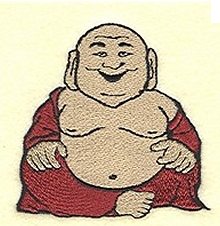 “To become vegetarian is to step into the stream which leads to nirvana”- Buddha
“To become vegetarian is to step into the stream which leads to nirvana”- Buddha
With the flood of documentaries and celebrities supporting plant based diets for better health, “vegan” and “vegetarian” seem to be hot buzz words lately. There are some compelling arguments for a plant based diet but before you dive in head first, do your research and know what you are getting into so you can make the best decision for YOU! Let’s take a look at what vegan and vegetarian mean…
What exactly is a “vegetarian”?
-
Ovo-Lacto vegetarian– includes both eggs & dairy
-
Ovo vegetarian– includes eggs but no dairy
-
Lacto vegetarian– includes dairy but no eggs
-
Vegan- follows a plant based diet with no animal products such as eggs, dairy, honey- unless you are currently a vegetarian, I wouldn’t recommend starting off as a vegan
It takes some planning: Becoming vegetarian is NOT as simple as eliminating meat, poultry and seafood from your diet. Animal products provide nutrients that are ESSENTIAL to a healthy immune system, and support body functions such as building and maintaining lean muscle mass. When removing these products from your diet, you MUST be diligent about getting the following nutrients from plant based sources:
Protein – Where will you get it? Protein is the most obvious nutrient but often the most overlooked. If you simply remove animal products from your diet, it is all too easy to leave your meals unbalanced with too many carbs, and NOT enough protein.
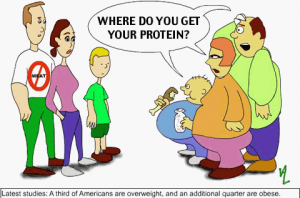 How much protein is enough? There are lots of differing opinions out there, but if you exercise in addition to being vegetarian, your protein needs will increase since resistance training and endurance workouts can rapidly break down muscle protein.
How much protein is enough? There are lots of differing opinions out there, but if you exercise in addition to being vegetarian, your protein needs will increase since resistance training and endurance workouts can rapidly break down muscle protein.
Here is a general industry standard formula for protein needs:
Weight in pounds divided by 2.2 = weight in kilograms
Weight in kg x 1.0-1.8 gm/kg = protein grams
For example, a 120 lb. woman who exercises and lifts weights regularly
120 /2.2= 54.54 x 1.5 = 81.81 or 82 grams of protein per day
As a Licensed Sports Nutritionist, as well as someone that works out, I think that ‘standard’ is on the low side. If you are working out hard, you should shoot for 1 gram of protein per pound of body weight. If you are trying to lose more than 10 pounds, base your protein on the amount you want to weigh. Body fat does not need protein to maintain itself, so if you are 190lbs and 50lbs over weight, consume protein as if you were 140lbs.
Good sources of protein are, protein powders, beans, legumes (lentils), nuts, and soy products. If you are ovo vegetarian- eggs, or lacto vegetarian- dairy products are all great sources of protein. The problem however arises that many vegan options for protein are also CARB heavy which if eaten in excess CAN lead to weight gain.
Other nutrients and vitamins to keep an eye on as a Vegan or Vegetarian:
Omega 3 fatty acids- generally come from eating fatty-type fish but as a vegetarian, you can obtain them from 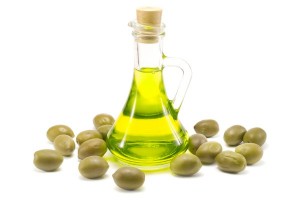 flaxseed and flaxseed oil as well as walnuts, soybeans, olive, hemp and soybean oils.
flaxseed and flaxseed oil as well as walnuts, soybeans, olive, hemp and soybean oils.
Vitamin B-12- the only natural sources of this vitamin are from meat, dairy or eggs; so vegetarians and especially vegans have to be conscious of obtaining it from fortified sources such as fortified cereals, faux meats, nutritional yeast, vegan cheeses & vegan yogurts.
Calcium- This is another major nutrient that you must obtain from other sources if you are NOT eating dairy. Good sources of calcium are, unsweetened coconut milk, chickpeas, broccoli, dried figs or in fortified foods such as orange juice, and cereal.
Vitamin D– Your body HAS to have vitamin D to absorb the calcium it needs. If you live in Southern California, Arizona, New Mexico, Texas, Florida, etc. you probably get a lot of natural sun so it’s not as much of a concern as in other parts of the US. Vitamin D is not found naturally in foods but is fortified into many dairy products which can be problematic for vegans and non-lacto vegetarians. The good news is its available in supplement form but check with your doctor for the right dose for you.
Iron- this can be a tricky one because not all iron rich foods are absorbed the same. Broccoli, kale, legumes, nuts, 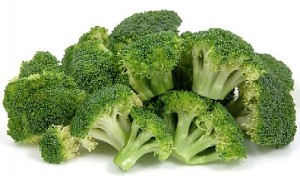 seeds, prunes, raisins, blackstrap molasses, fortified cereals and grains are all easily absorbed when eaten in combination with vitamin C rich fruits and vegetables. But… DON’T drink your Starbucks while eating your iron rich foods as the tannins in tea and coffee prevent the iron absorption. Another great way to get iron naturally is to cook with cast iron pots & pans.
seeds, prunes, raisins, blackstrap molasses, fortified cereals and grains are all easily absorbed when eaten in combination with vitamin C rich fruits and vegetables. But… DON’T drink your Starbucks while eating your iron rich foods as the tannins in tea and coffee prevent the iron absorption. Another great way to get iron naturally is to cook with cast iron pots & pans.
Zinc- is a biggie for metabolism, immunity and overall good health. Vegetarians can need up to 50% MORE zinc than meet eaters because zinc found in plants isn’t absorbed by the body as well as animal sources. Plant based sources are whole grains, wheat germ, tofu, tempeh, miso, legumes, nuts, seeds, and egg and dairy products if you are lacto or ovo vegetarian.
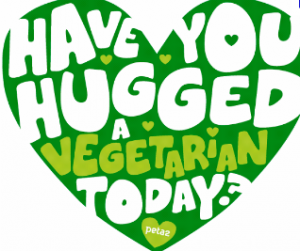 Pros of being vegetarian?
Pros of being vegetarian?
Some evidence supports that being vegetarian may prevent diseases like type 2 diabetes, obesity, heart disease, and cancer.
You have the potential to save money. Fresh fruits, veggies, nuts, and grains can be a lot cheaper than steak and seafood.
What are the cons of being vegetarian?
Here is the thing – Being a vegetarian or a vegan can be healthy and rewarding but it WILL take a solid commitment with lots of thinking and planning. Going out to eat at a restaurant or a friends house for dinner will require more preparation. You must be willing to eat ahead of time, share you food preferences with friends, and be prepared to ask restaurants to alter meals for you.
Food choices become limited and you have to be conscious and even creative to get all the nutrients you need from plant based sources. Many vegetarian options and even more vegan options can be very heavy in carbohydrates which CAN lead to weight gain if not balanced with healthy fats and high quality protein.
The Last Word
You just need to know going in that to get the ‘toned’ look, or to put on quality lean mass, it is MUCH harder to accomplish being strict vegan/vegetarian, but it can be done. It can be tough to get quality protein without all the added carbs on a strict vegan/vegetarian diet.
I’m NOT trying to dissuade you from being vegan/vegetarian, it is just that lately I have had several people that were ‘vegans / vegetarians’ relax their standards and use fish, eggs, whey protein, and egg protein once they saw what was really required to be a strict vegan/vegetarian. It can totally be done…but it IS more difficult. Just want to make sure you realize that, so you can get the RESULTS you want.
You can still get the benefits of a plant based diet by eating lots of fresh vegetables and fruit as part of your nutrition program.
Along those lines, I have been getting a lot of questions lately from women debating between the regular jump start, and the vegan jump start. If you are strict, definitely get the vegan plan. If you aren’t super strict and are open to eating eggs, milk, and/or fish, or using whey protein, then the regular women’s jump start would be the better option for you.
 Excuses or solutions…YOU decide!
Excuses or solutions…YOU decide!
-Natalie Jill
Special thanks to Natalie Jill Fitness staffer, Marne Moore for her contributions on this blog post…
Unprocess your diet and lose 5-7lbs the first week you start! Download the ORIGINAL 7 day jump start plan HERE.
Pick up my hard-copy book, Unprocess Your Diet, with 84 new recipes HERE.
